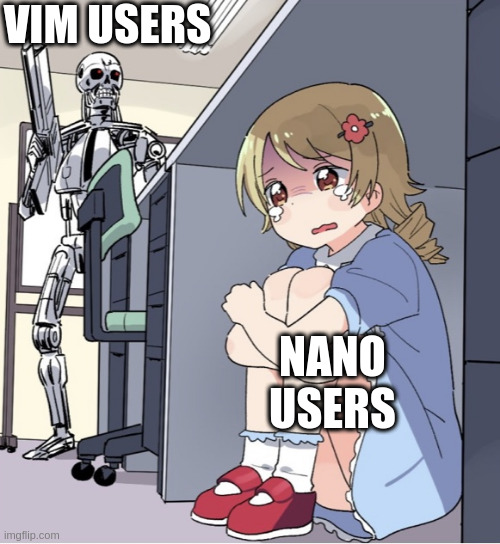this post was submitted on 02 Sep 2024
699 points (93.4% liked)
Linux
47237 readers
3343 users here now
From Wikipedia, the free encyclopedia
Linux is a family of open source Unix-like operating systems based on the Linux kernel, an operating system kernel first released on September 17, 1991 by Linus Torvalds. Linux is typically packaged in a Linux distribution (or distro for short).
Distributions include the Linux kernel and supporting system software and libraries, many of which are provided by the GNU Project. Many Linux distributions use the word "Linux" in their name, but the Free Software Foundation uses the name GNU/Linux to emphasize the importance of GNU software, causing some controversy.
Rules
- Posts must be relevant to operating systems running the Linux kernel. GNU/Linux or otherwise.
- No misinformation
- No NSFW content
- No hate speech, bigotry, etc
Related Communities
Community icon by Alpár-Etele Méder, licensed under CC BY 3.0
founded 5 years ago
MODERATORS
you are viewing a single comment's thread
view the rest of the comments
view the rest of the comments

kwrite and gedit friends rise up :)
How do you use these when you are connecting via SSH? You enable X forwarding?
It's fine when you have a graphical environment, but what do you do when you dont have one?
A similar argument is what finally caused the value of the vi family of editors to click in my brain:
They are designed to be fully functional over even the shittiest possible* remote connection. You can't always count on ctrl, alt, or even the arrow keys being transmitted in a way that is understood by the remote machine.
*Well, I guess the worst possible terminal would be something like an actual teletype, and in that case you'd probably want to fall back to ed or its descendants. To save paper, if nothing else.